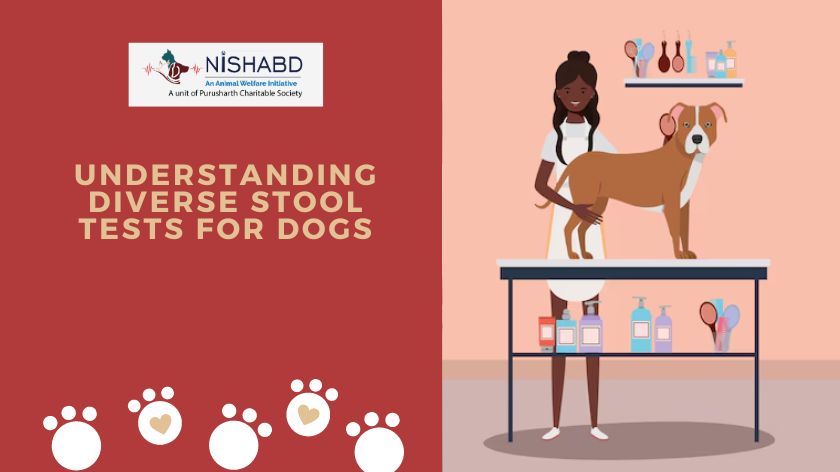Understanding Diverse Stool Tests for Dogs
Stool tests are essential diagnostic tools used by vets to evaluate their pets’ health. When examining the dog’s stool, doctors can detect a range of conditions including digestive issues and parasite-related infections. This blog will discuss the various types of stool tests offered to dogs, their significance in the medical field of veterinary medicine and how they assist in determining the right diagnosis and treatment planning.
The importance of stool tests for dogs
There are various types of stool tests. The dog’s stool may provide valuable information about the overall health and health. Changes in the consistency of stool or color and the composition of the stool can suggest health-related issues for example, food allergies or infections, or even more serious problems like cancer. Regular stool tests are crucial for dogs who are puppies, older or sufferers of digestive problems that persist to identify early and offer immediate treatment.
The most common types of stool tests for dogs:
- Fecal Flotation Test
The fecal flotation test is used to identify intestinal parasites in dogs through inspecting parasite eggs and the oocysts found within stool specimens. It aids veterinarians in diagnosing the presence of infections, develop treatment plans to prevent transmission.
Method: A stool sample taken from a dog is mixed with an emulsion solution, squeezed and then centrifuged, concentrating eggs of parasites on the surface. The microscopic examination identifies and counts eggs, providing the most effective treatment for veterinary patients.
Regular testing is essential to ensure your dog’s health, specifically those who have digestive problems or the possibility of infection with parasites. - Fecal Smear Test
The fecal stool test is utilized to determine the presence of bacteria, fungi, as well as protozoa which cause intestinal infections in dogs. It assists veterinarians in identifying the pathogens responsible for vomiting, diarrhea as well as other symptoms of gastrointestinal.
Method: This test involves a smear from the dog’s stool is placed using a slide microscope colored with specific dyes and then examined under the microscope. This procedure allows the visualization and identification of microorganisms by its size, form and the characteristics of staining. The fecal stool test plays an important role in guiding specific treatment strategies to treat the root cause of digestive problems in dogs. - Dysbiosis Test
Dysbiosis testing for dogs is designed to assess the health and diversity of microbial communities that live in their gastrointestinal tract. The test involves taking stool samples, extracting Microbial DNA and using modern sequencing technologies to determine the composition of fungi, bacteria and other microorganisms that are present.
Method: Tools for bioinformatics analyze the data from sequencing to find any disruptions or imbalances in your gut’s microbiota. Veterinarians make use of these insights to create dietary guidelines and probiotic treatments, or treatments specific to improving the balance of microbial activity and the overall health of dogs’ digestive systems. Dysbiosis testing is a crucial element in enhancing the health of dogs by implementing specific interventions. - ELISA (Enzyme-Linked Sorbent Assay) Test:
ELISA tests are used to detect antigens or antibodies present in dog’s stool helping to determine the presence of immune-mediated diseases or infections. They are vital in identifying specific pathogens, such as bacteria, viruses or parasites that cause gastrointestinal ailments.
Method: In this method, stool samples will be mixed together with antibodies that have been linked to enzymes. If the antigen that is of importance exists, then it binds with the antibodies, and forms the complex. Enzymes trigger a reaction, resulting in an identifiable color change that indicates the presence and amount of antibodies or antigens. ELISA tests give veterinarians fast and accurate diagnostic data to determine the best treatment plan for dogs. - Culture Test
The tests used for culture are designed to determine the presence of the fungi or bacteria that cause gastrointestinal illnesses in dogs. They aid veterinarians in diagnosing specific pathogens and decide on appropriate treatment options.
Method: In the process the stool sample is grown on specially designed growth media in the lab. The environment, such as the humidity and temperature are controlled to stimulate the growth of fungi or bacteria found within the specimen. After incubation, microbiologists analyze the samples for specific growth patterns, and then conduct additional tests to determine the species. The tests for culture can provide useful information about the type and susceptibility of pathogens. aiding in the selection of targeted antibiotics or antifungal treatment for the effective treatment of digestive infections in dogs.
Conclusion:
Tests for dog stool serve as a vital diagnostic tool in veterinary medicine. They are similar to detectives who unravel questions about health by meticulous analysis of feces. These tests are crucial to detect and identify infections, parasites, fungi and other pathogens creating digestive issues.
Each of these methods play a vital role in accurately identifying health issues in dogs, and assisting veterinarians to develop specific treatments to achieve optimal quality of life for their clients.

